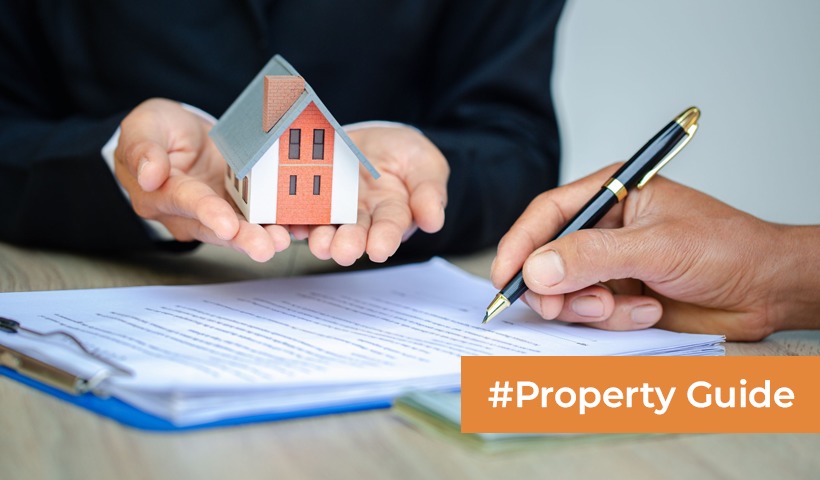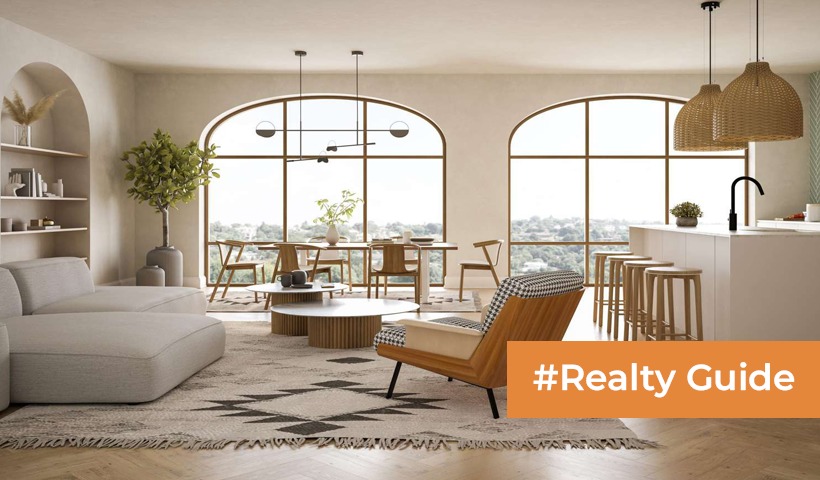Flat Vs Apartment: Key Differences Between Flat and Apartment
Exploring housing options in India? The terms “flat” and “apartment” often come up frequently, but it’s not just about spelling; these words represent distinct concepts in the housing market. While the terms are usually used interchangeably in everyday conversation, there are subtle differences that can impact your choice depending on your lifestyle, budget, and expectations.
Whether you’re looking to invest or find your next home in India, understanding the Flat vs Apartment differences is a very important step.
What Is A Flat?
A flat, often a term more commonly used in the UK, refers to a single-level residential unit located within a building. These are characterised by their direct access via a shared entrance or staircase. Flats are prevalent in both suburban and urban settings in India, offering a variety of architectural styles and historical significance. They are typically part of smaller buildings and might not offer the extensive amenities that larger complexes do.
What Is An Apartment?
An apartment in India refers to a residential unit in a larger, often multi-storied complex. These complexes are designed to provide not just living space but a comprehensive lifestyle option with various amenities such as security systems, elevators, parking spaces, community halls, and more. The focus here is on providing a comfortable, community-oriented environment, which is increasingly favoured by the modern Indian family.
The Difference Between Flat VS Apartment
The primary difference between flats and apartments revolves around their usage in different contexts and slight variations in meaning, which can be significant depending on regional real estate markets.
| Feature | Flat | Apartment |
|---|---|---|
| Definition | A single-level residential unit within a building. Often used in British English. | A residential unit in a complex with shared facilities such as gyms, pools, etc. Typically used in American English but gaining popularity in urban Indian contexts. |
| Ownership | Generally owned individually, flats are part of smaller buildings. | Apartments are part of large complexes and are often managed by homeowner associations. |
| Size | Size can vary, but flats are often smaller due to being in older or smaller buildings. | Apartments tend to be larger, designed for families, and are part of bigger residential complexes. |
| Facilities | Minimal facilities; may not include amenities like a gym or a pool. | Includes a range of amenities such as gyms, community halls, pools, and more. |
| Location | Can be located in any part of the city, often in older districts. | Usually part of planned urban developments, often in newer areas of the city. |
Whether you’re eyeing an apartment with its modern amenities or a flat with its traditional charm, both flats and apartments offer distinct advantages depending on the buyer’s preferences. Here’s what you can expect when choosing either option.
- Community Living: Apartments often come with a strong sense of community, with common areas and organised social events.
- Security: Higher security with CCTV, gated entries, and, in some cases, manned security.
- Amenities: Access to facilities like swimming pools, gyms, and playgrounds which are less common in flat setups.
- Maintenance: In apartments, maintenance issues are generally handled by the management, easing the burden on residents.
- Privacy and Independence: Flats often offer more privacy as they tend to have fewer units in each building.
- Customisation Freedom: Owners of flats usually have more leeway to customise their space compared to apartment dwellers, due to less stringent rules.
- Lower Cost of Entry: Generally, flats are more budget-friendly in terms of initial purchase price, especially in less central areas. Flats might appeal more to those looking for fewer frills, potentially lower costs, and possibly closer proximity to bustling city centres.
Tips For Buying A Flat Or Apartments In India
Purchasing property, be it a flat or an apartment, is a significant milestone for everyone. Thus, it requires careful planning and consideration. When considering purchasing a flat or an apartment, keep the following tips in mind.
- Budget Appropriately: Ensure your budget accounts not only for the cost of the property but also for maintenance charges, property taxes, and other incidental costs.
- Check Legal Documents: Verify the title deeds, approval plans, and occupancy certificates to ensure the property is legally sound.
- Location: Consider the location’s connectivity, proximity to essential services, transport, schools, and workplaces.
- Future Value: Evaluate the potential for future value appreciation, considering factors like upcoming infrastructure projects and neighbourhood developments.
- Research the Builder’s Reputation: Investigate the track record of the builder or developer to ensure quality construction and reliability.
- Understand the Resale Value: Consider the property’s resale value, looking at historical data and future area developments.
- Assess the Management: For apartments, evaluate the management’s efficiency and responsiveness, as this will impact your living experience.
Discover your perfect home with PropertyPistol! Connect with us today to find a space that fits your dreams perfectly.
Frequently Asked Questions
1. What is the difference between a flat and an apartment?
The term “flat” is typically used to describe a single-level unit within a smaller residential building, usually without many additional amenities. “Apartment,” however, often refers to a unit within a larger, more modern complex with multiple amenities such as security, elevators, and sometimes communal recreational facilities.
2. Is buying a flat a good idea?
Buying a flat can be a great investment if you are looking for a more cost-effective housing option in well-established areas. They often come with lower maintenance costs but consider the age of the building and potential future expenses.
3. Is buying an apartment a good idea?
Apartments can be an excellent choice for those looking for additional amenities and a community lifestyle. They are part of newer developments with better security and facilities, making them ideal for families.
4. What should I look for when buying a flat or apartment?
Key factors to consider include the property’s legal standing, the reputation of the developer, the quality of construction, the range of amenities provided, and the potential for appreciation in property value.
5. How do I decide between a flat and an apartment?
Your decision should be based on your lifestyle preferences, budget, and long-term living needs. Consider whether you value community amenities, the importance of location, and the type of maintenance support you expect.
Disclaimer: The views expressed above are for informational purposes only based on industry reports and related news stories. PropertyPistol does not guarantee the accuracy, completeness, or reliability of the information and shall not be held responsible for any action taken based on the published information.




